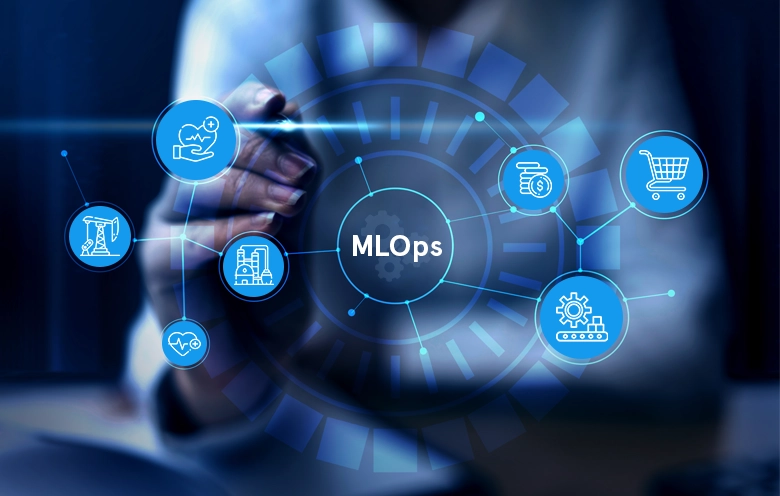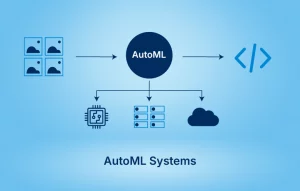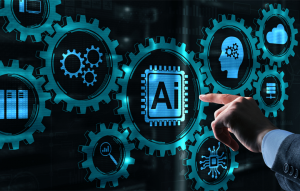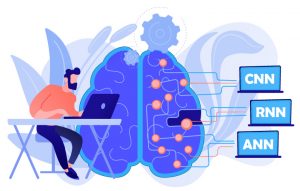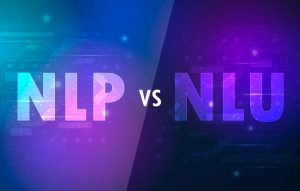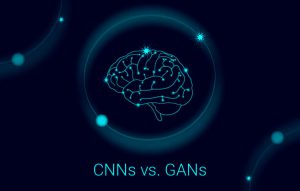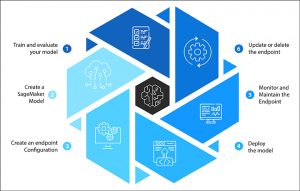Machine learning operations (MLOps) is a set of practices and technologies used to automate, deploy and manage machine learning models. As different industries adopt machine learning, MLOps is becoming progressively important. It has become crucial to ensure the successful deployment and management of these models at scale.
Early adopters of MLOps reported 10-fold increase in productivity and 5-times faster model training. – Cnvrg.io
In this article, we will explore MLOps implementation in various industries, along with some challenges they face and how MLOps solves them.
Before we jump into the blog, you can explore the workings of MLOps and its benefits.
MLOps in the healthcare industry
One of the main challenges faced by healthcare providers is the need to ensure the accuracy and reliability of their models. This is particularly important when developing models for predicting diseases, where false positives or negatives can have serious consequences.
MLOps addresses this challenge by providing a framework for model testing and validation. This ensures that models are robust and accurate. MLOps can be used for predicting disease outbreaks, improving patient monitoring and reducing costs.
For instance, MLOps can be used to build healthcare analytics models. These models allow healthcare companies to analyze electronic health records (EHRs). It also enables them to predict which patients are prone to developing certain diseases. This can help healthcare providers take preventative measures and provide targeted care to high-risk patients.
How MLOps helped the NHS with accurate diagnosis
The NHS in the UK partnered with a tech company to develop an AI-powered tool to predict patient needs in hospitals. Also, they built a platform to improve COVID-19 patient outcomes by analyzing medical records and identifying risk factors. With MLOps, the NHS deployed machine learning models at scale and with efficiency. This ensured that they are optimized and continually updated to improve accuracy and performance.
MLOps enabled rapid iteration, testing and deployment of machine learning models. This led to faster and more accurate diagnoses and treatments for patients. It also allows the NHS to scale its AI capabilities more efficiently and cost-effectively.
MLOps in the finance industry
One of the main challenges faced by financial institutions is the need to maintain data privacy and security while also leveraging the power of machine learning. MLOps helps address this challenge by providing a framework for secure model deployment and management.
MLOps has a range of use cases in the finance industry, including fraud detection, risk management and personalized financial services.
For example, MLOps can detect fraud in real time. This can be done by analyzing transaction data and identifying fraud patterns. It can also be used to develop credit risk forecasting models. This helps financial institutions make better lending decisions.
How Capital One leveraged MLOps for fraud detection and risk management
Capital One, a leading American bank, used MLOps to develop an anomaly detection model to identify fraudulent transactions. The model was trained on millions of data points to identify patterns and outliers that could indicate fraudulent activity. The model was then deployed in a production environment, where it detected fraudulent transactions in real-time.
The bank found that the MLOps-based anomaly detection model was more accurate and effective at identifying fraud compared to traditional rule-based approaches. The model could also adapt to new types of fraud that were previously unknown. This allowed the bank to stay ahead of fraudsters.
The successful MLOps implementation at Capital One shows how machine learning can improve financial fraud detection accuracy and effectiveness.
MLOps in the retail industry
One of the main challenges faced by retailers is the need to provide personalized experiences for customers at scale. By personalizing the customer experience with MLOps, retailers can gain a competitive edge.
MLOps has a range of use cases in the retail industry, including demand forecasting, inventory management and personalized marketing. For example, MLOps can be used to analyze sales data and develop models for predicting future demand. This can help retailers optimize their inventory and ensure the right products are in stock at the right time.
How Walmart improved demand forecasting accuracy by up to 20% with MLOps
Walmart partnered with a tech consulting firm to develop a real-time predictive modeling solution to enhance in-store inventory management and product forecasting.
They utilized MLOps for efficient training and deployment of machine learning models. The models were continuously monitored and retrained, resulting in improved accuracy over time. The solution was more accurate than traditional demand forecasting methods. This helped the retailer reduce out-of-stock incidents and improve customer satisfaction.
Walmart has since expanded the use of AI and MLOps across its business. They implemented similar solutions for other use cases, such as fraud detection and supply chain optimization.
MLOps in the manufacturing industry
One of the biggest challenges in the manufacturing industry is predicting machine failures. However, MLOps offers a solution by enabling the prediction and prevention of equipment breakdowns. This is achieved through the application of predictive maintenance, where machine learning models are trained on historical data to recognize patterns that signify impending failures.
How MLOps helped Bosch in achieving 15% greater machine availability
Bosch, a leading industrial equipment manufacturer, used MLOps to optimize its predictive maintenance process. The company developed a machine learning model predicted the likelihood of equipment failure.
They used MLOps to train the model on data collected from sensors and other sources. The model accurately predicted equipment failures. This helped the company to perform proactive maintenance and avoid costly downtime. As a result, Bosch was able to achieve 15% higher machine availability.
MLOps in the oil and gas industry
One of the biggest challenges in the oil and gas industry is identifying the most suitable locations for drilling. MLOps can be used to analyze seismic data and other geological data to identify the most promising locations for drilling.
Another area where MLOps can be useful in the oil and gas industry is in optimizing production. Machine learning algorithms can predict and prevent equipment failures, reducing downtime and increasing production efficiency. They can be used for resources such as water, which is often used in oil and gas production.
How Shell implemented Smart Fields to increase oil recovery from a field by 10%
Shell, one of the world’s largest oil and gas companies, uses MLOps to optimize its exploration and production processes. The company developed a machine learning model that forecasts oil and gas reserves based on geological data.
They used Kubernetes and TensorFlow to train their model on a large dataset of geological data. The model accurately predict the locations of oil and gas reserves, allowing Shell to focus its exploration efforts on the most promising areas. As a result, Shell increased its oil and gas production by 10%, leading to a significant increase in revenue.
Challenges and opportunities with MLOps
Implementing MLOps in an organization requires overcoming various challenges such as data quality, model interpretability and security. Organizations need to make sure that their data is clean, accurate and representative of their target population. They also need to ensure that their machine learning models are interpretable, explainable and unbiased. In addition, they need to ensure that their machine learning models are secure, reliable and compliant with regulatory requirements.
However, implementing MLOps also presents various opportunities for organizations to improve their operations. MLOps enable organizations to accelerate machine learning model development, deployment, and management. This, in turn, helps reduces time-to-market and increases agility. It also enables organizations to monitor and improve the performance of machine learning models, increasing accuracy and efficiency.
Emerging technologies to further advance MLOps
As MLOps evolves, emerging technologies such as federated learning, blockchain and explainable AI are expected to further advance its capabilities. Federated learning, for example, enables the creation of machine learning models across multiple devices or servers without the need to transfer data to a central location.
Blockchain technology offers new opportunities for secure and transparent data sharing. This is particularly useful in industries that require high levels of data privacy and security.
Finally, explainable AI is becoming increasingly important in fields such as healthcare and finance. It is essential to understand how machine learning models make decisions in these industries.
Leverage MLOps services to transform your business
The future of MLOps is exciting, with trends and predictions indicating that it will continue to play a vital role in different industries. The demand for more intelligent and automated systems will grow. Also, businesses will increasingly look for MLOps services to help them achieve these goals.
The future of MLOps looks promising with advancements in technologies such as automated machine learning and federated learning. Therefore, you must adopt MLOps now to stay competitive. With MLOps, you can unlock the full potential of AI and machine learning. Achieve better outcomes for your customers and stakeholders. Talk to our machine learning experts and discuss the endless opportunities MLOps can bring to the table.


